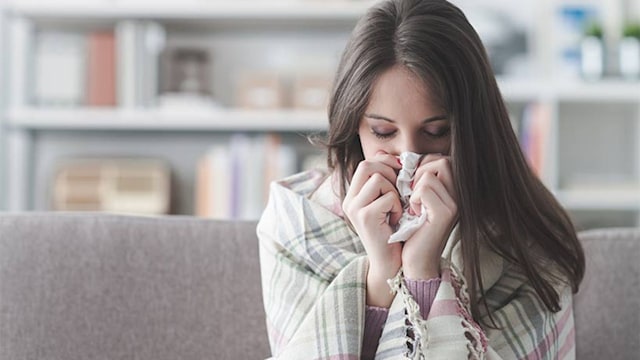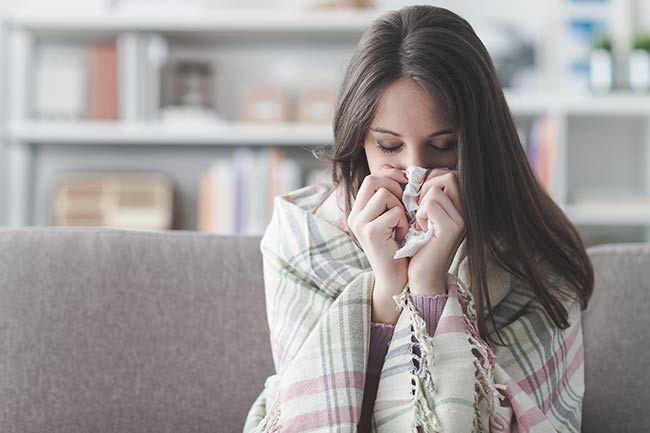Flu season is already underway, and the NHS has warned that there may be more cases than usual this winter, making getting vaccinated even more important. In the UK, 600 people die every year from complications of flu, such as pneumonia, but many 'high risk' groups are eligible to receive a free flu vaccination on the NHS to help protect against infection. Here's all you need to know if you're considering getting the flu jab…
STORY: Emily MacDonagh encourages pregnant women to get a flu jab
What are the symptoms of flu?
Some of the main symptoms of flu include a high temperature of 38⁰C or above, tiredness and weakness, a headache, general aches and pains and a dry, chesty cough. Flu can make you feel so unwell and exhausted that you have to stay in bed and rest until you feel better.
How should you treat flu?
There is usually no need to see a doctor if you have flu-like symptoms and are generally fit and healthy. The best treatment is to stay at home, keep warm and drink plenty of water to avoid dehydration.
How can you prevent catching or spreading the flu?
Using good hygiene measures can help to stop yourself catching the flu or spreading it to others. Always wash your hands regularly with soap and warm water, and regularly clean surfaces such as your phone and door handles. Use tissues to cover your mouth and nose when you cough and sneeze, and dispose of them as soon as possible.
If you are at risk of more serious flu, consider getting an annual flu vaccine to help reduce your chances of being infected.
MORE: See the latest health features here
Who should get a flu jab?
According to the NHS, people in 'high risk' groups should get an annual flu jab to reduce their risk of infection. A flu vaccine is available for free on the NHS for the following people –
- Anyone over the age of 65
- Pregnant women
- Children and adults with an underlying health condition, especially long-term heart or lung disease
- Children and adults with weakened immune systems
What are the side effects of the flu jab?
You may get a mild fever and slight muscle aches for a day or so after getting a flu vaccination. Serious allergic reactions are very rare.
If you think you may be eligible for a free flu vaccination contact your GP for more advice.











